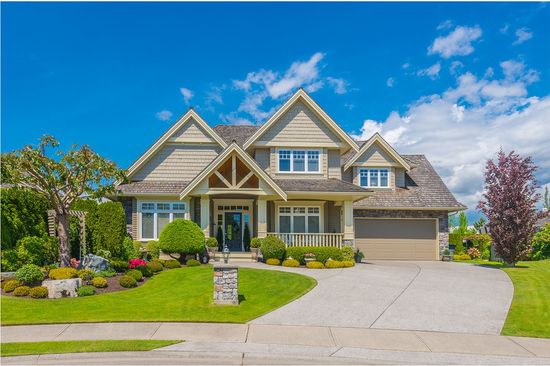Townhouse Versus Condo: Which Property is Best for Me?

If you’ve thought about owning a home, but feel there’d be too much space to maintain, you need to evaluate townhouse vs. condo purchases.
First-time home buyers with little money saved and no time for home maintenance may benefit the most from starting in a condo or townhouse and upgrading to a house later on. Baby Boomers and seniors can also benefit from the little upkeep and lower costs that a condo or townhouse have.
They are often less expensive than single-family homes in regard to both the initial investment as well as monthly payments, even when factoring in various fees.
Let’s compare the two, so you can understand which is the better fit for you.
Condos vs. townhouses
Condos are a community within a building, where each unit is owned by an individual instead of a landlord. Their size and features are similar to what you get when renting an apartment. The only real difference is the ownership factor.
Townhouses are more similar to single-family homes, in that you have land to care for and their structure more closely resembles that of a house as opposed to an apartment — more on that in the section below.
Location and structure
Condos are often available in prime downtown locations, and their structures are very similar to apartments. They’ve often been called “luxury apartments.” When it comes to millennials, condos are quite attractive. That’s because many millennials understand buying a property in a prime location will pay off one day. As soon as it starts to feel like they’ve grown out of their little nest in downtown, they can move elsewhere and turn their former home into a rental.
Townhomes are closer to the suburbs, or — at best — nearby urban areas (if city life is your preference). They’re generally two, sometimes three, stories high and are designed in rows.
Compared to living in a condo or an apartment, townhouse occupants have more private space and their own private outdoor entrance. Recent reports have townhouse sales surging in popular markets like Denver, Seattle, Nashville, and San Antonio.
Thinking of renting out a property? Check out Rental Property Financing.
Purchase cost
Condos are often cheaper than townhouses because they come with no land. There are other costs to consider, too. Property taxes, home insurance, and home inspection costs vary depending on the type of property you’re purchasing and its location. Depending on your lender, you may even be looking at higher interest rates and a more significant down payment for your townhouse or condo purchase. Be sure to factor in all fees before making your decision. There’s more “cost” involved than the listing price.
Insurance and HOA fees
Home insurance rates are typically lower for condo owners because you only have to insure the interior of your property. With townhouses, you also have to insure the exterior.
When you purchase a condo or townhouse, you are required to pay monthly fees into a Homeowners Association (HOA). HOA fees vary, but you should expect to pay more if you own a condo vs. a townhouse because condos include more maintenance and upkeep. If you own a townhouse, a lot of that maintenance will be done on your own and paid for out of pocket.
Before you buy any property, it's a good idea to make sure you understand what kind of maintenance will be required and how much it may cost.
Property tax
Property taxes take your home’s assessed value and the mill levy (or area tax rate) into consideration — ultimately meaning it doesn’t matter if your home is called a “condo” or “townhouse,” all that matters is your acreage, square footage, number of bedrooms, and nearby public amenities.
Because of a number of factors, including space and size, you can typically expect to pay lower property taxes on townhouses and condos versus single-family homes.
Equally important to note — different states have different tax rules. So, your property tax can vary based on where you live. Make sure you do your research — and math — and speak to your realtor about potential tax costs before choosing a townhouse or condo.
HOA rules and regulations
Before purchasing a condo or townhouse, potential buyers should ask for a copy of the HOA's meeting minutes and rules and regulations. These rules can be called covenants, conditions, and restrictions (CC&Rs). No matter their name, they will give you a clear picture of what you can and can’t do in your condo or townhouse. Examples include: whether or not you can have pets, what kind of decor you can have, the color paint you can use, and how late common areas (pool, gym, etc.) are open.
Resale value
As your unit ages, you may be competing with newer and less expensive developments. You also have to consider supply and demand. If any of your neighbors are selling at the same time, there may not be much to distinguish your condo (or townhouse) from theirs. You may need to drop your price to compete, ultimately losing some of that resale value.
Buy smart by choosing a condo or townhouse that has convenient access to public transit and is affordably priced in an otherwise unaffordable location. Consider where in the building or row of homes your unit is located. It may be a difference maker when it comes time to sell. Purchase somewhere that’s high demand and appeals to both the young and old. After all, condos and townhouses are ideal property types for first time home buyers and baby boomer retirees.
The bottom line
The benefits of owning a home instead of renting offer buyers several tax advantages, the ability to grow equity, and of course a place to call your own. And, the current real estate and mortgage market conditions have created the perfect opportunity to transition from writing a monthly rent check to investing in your own home. Whether you’re looking to finance a townhouse vs. a condo or vice versa, we’re here to help. Give one of our mortgage consultants a call today (800) 910-4055.




